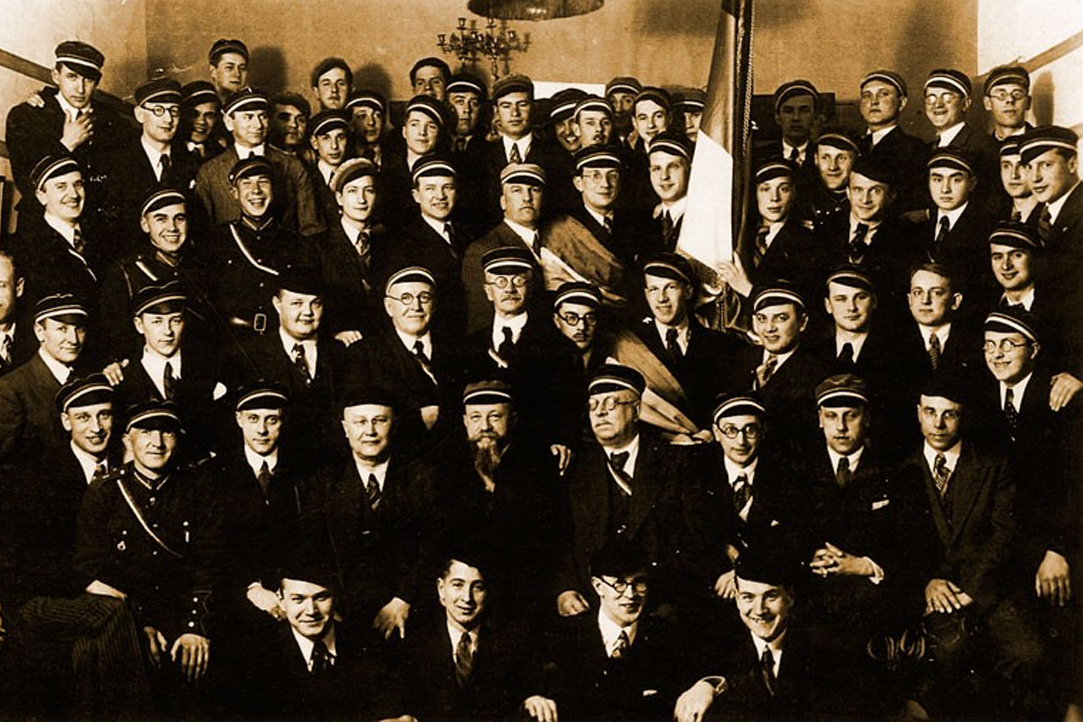A Brief History of Student Corporations in Russia

The concept of student fraternities and sororities is famous all around the world thanks to their representation in Hollywood cinema, so almost everyone knows about the existence of these Greek letter single-sex student societies, which on one hand are built on brotherhood and common goals, on the other hand, are also built on excessive alcohol consumption and partying. Fraternities exist in Europe too, but the concept and the public image are rather different from the US colleagues.
European student fraternities originate from middle age Germany: young men moved to cities to study in universities and grouped at first by nationality and by region after that. Today there are more than 1000 fraternities in Germany and they function as Germans call it ‘Studentenverbindung’, i.e. student corporation. As part of the corporation, students spend their university years in an organized community, whose members stay connected even after graduation. A goal of this lifelong bond is to create contacts and friendships over many generations and to facilitate networking.
Nowadays, student corporations are built upon the principle of tolerance: no one of them may endorse a certain political, scientific, or religious viewpoint. In addition, all members are solely chosen by their personal character. Neither national, ethnic, nor social provenance plays a role. But even with this principle of tolerance being one of the central aspects, corporation members are urged to develop their own views, to stand for them and to strongly participate in society, whether in politics, economy, or social affairs.
Its main goal is to unite students from different Russian universities
In the Russian Empire, the first student corporation was organized at the University of Dorpat in Tartu (Estonia) in 1808. The first Russian student corporation was founded the same year in Göttingen (Germany). Both of them were named ‘Ruthenia’, which translates as ‘the lands of Russians’ from Latin. In 1937 two student corporations were founded in Saint Petersburg, one of them was named ‘Ruthenia’ once again, another one was named ‘Baltica’. All of the listed corporations had a constant struggle with authorities and eventually in 1863 the university statute enacted by the emperor of Russia Alexander II prohibited any kind of student associations and unification.
Nowadays, if one googles ‘Russian fraternities’, only two instances of such organizations can be found. The first one is ‘Fraternitas Arctica’, which is a Russian student corporation located in Riga, Latvia that allegedly originated in the late XIX century. The second one is an actual Russian student corporation, it is named ‘Fraternitas Ruthenica’, i.e. the Russian brotherhood, and was founded in 2015 in Moscow.
Little is known about it as this corporation is a full-on secret society. However, from a couple of anonymous interviews online and their own website it appears that ‘Fraternitas Ruthenica’ functions as true ‘Studentenverbindung’: its main goal is to unite students from different Russian universities, the corporation is free of any kind ideological framework or politics. At several interviews, the alleged founders claim that ‘Fraternitas Ruthenica’ is their attempt to create a long-standing tradition of student brotherhood, which has been lacking in Russia for decades.
All in all, next time you will be hanging out in the bar on Friday evening in Moscow, take a look around and maybe - just maybe - you will spot a company of young men and women in the formal attire, who are talking inappropriately loud about culture, philosophy and bright Russian future, and take your chance to meet potential future vanguard of Russia.
Text by
Rostislav Miretskiy
